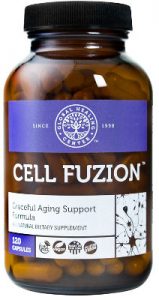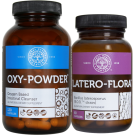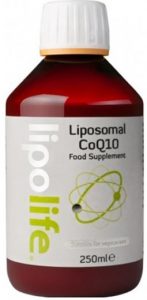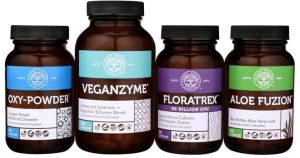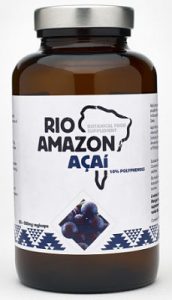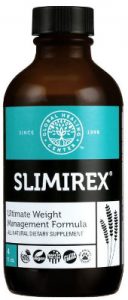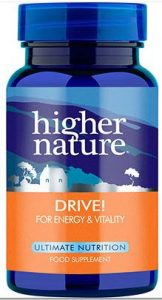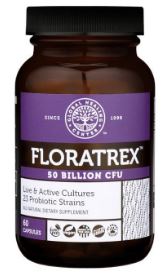Let’s face it, when it comes to the ‘alphabet soup’ of vitamins, it can be a little difficult telling all those vitamins apart. Of course, it’s a good idea to top up your intake of as many of them as possible – in their natural states, if you can. But, now and again, it’s also worth focusing on not just the obvious Vitamins A, B, C and D, but the less talked-about vitamins. For instance, are you getting enough Vitamin B12? Because if not, you really should be.
Each and every one of us needs our fair share of Vitamin B12. It’s necessary to maintain satisfactory energy levels, good brain function and support for the nervous system. In particular, though, if you have to take antibiotics with any regularity; if you often have sleeping issues; if you suffer from celiac disease; if you struggle with digesting gluten and absorbing nutrients; if you often take antacids; if you’re a pregnant woman; if you’re of advanced age; if you smoke; or if you’re a vegetarian or a vegan… if you’re any of those things, you’re advised in particular to make sure your body’s B12 levels are maintained. Basically then, when it comes down to it, everybody needs B12.
What does B12 do?
So, in more detail, here’s exactly why Vitamin B12 is so crucial for the human body’s wellbeing:
- Energy booster – B12 naturally boosts energy because it helps stimulate the body’s adrenal glands, ensuring support for metabolism via production of red blood cells
- Improves melatonin release – by supporting how and when the body releases melatonin, B12 helps achieve good sleep, as well as reinforcing other critical functions in the body, such as those in and related to the nervous system
- Supports brain health – maintaining high levels of B12 should help ensure healthy brain function, a balanced mental state and a good mindset; in fact, research has suggested that B12 deficiency could pave the way to brain shrinkage
- Increases production of red blood cells – by boosting red blood cell levels, B12 supports total wellbeing, simply because the more red blood cells you have, the more oxygen can be efficiently transported to all the cells and tissues in the body where it’s needed
- May help avoid megaloblastic anaemia – a blood-related condition, megaloblastic anaemia causes fatigue in its sufferers, due to red blood cells not developing as they should and, thus, the body not being able to transport oxygen properly and effectively.
It ought to be pointed out, too, that, although increasing your body’s B12 levels has not been found to cure sufferers of Alzheimer’s disease, there does – according to preliminary reports – appear to be a link between B12 deficiency and the debilitating disease.
The benefits of B12 supplementation
Now, as already noted, the ideal way for us human beings to consume Vitamin B12 is through our diet, but doing or getting things that are ideal for us is, of course, not always easy. Sometimes, sadly, it’s not even possible. Indeed, research has proved that for as many as 30 percent of all adults over the age of 50, it’s not possible for them to obtain – or, specifically speaking, absorb – B12 via food or drink alone.
The answer? For these people – and for many of whom, for one reason or another, have to live everyday with dietary restrictions – the best bet of getting the B12 they need is through naturally-derived, reliable and well-regarded supplementation. And a good example of such a supplement is VeganSafe B12, available through us at The Finchley Clinic. Why? Well, not only because – yes – it’s entirely suitable for vegans and vegetarians, but also because it contains the two bioavailable, coenzyme forms of B12, methylcobalamin and adenosylcobalamin.
What’s the big deal about this? Well, as the European Food Safety Authority has acknowledged, combining adenosylcobalamin and methylcobalamin ensures the best and safest, naturally-occurring supplement of B12; the body is able to recognise, metabolise and put to use these two B12 forms quickly.
To be clear, Vitamin B12 occurs in four different forms; not just the naturally-occurring methylcobalamin and adenosylcobalamin, but also hydroxocobalamin and cyanocobalamin. To its credit, hydroxocobalamin is also a natural form of B12; yet, the body isn’t able to use its benefits as quickly as the core ingredients of VeganSafe B12. Conversely, the final form of B12, cyanocobalamin, we advise to avoid at all costs.
This is because it’s not naturally-occurring in the least, being a synthetic form of B12 that often serves as an ingredient in low-end supplements, as well as in fortified food. Even worse, it comprises a cyanide molecule that the body is forced to metabolise in order to get any limited goodness from it at all.
VeganSafe B12 – the benefits rundown
So, just to underline the fact; we highly recommend VeganSafe B12 as a great source for topping up your body’s B12 levels because this supplement can:
- be absorbed throughout the body easily, requiring no conversion in your liver
- be consumed by vegans and vegetarians (it’s also GMO- and gluten-free)
- nutritionally aid the body’s nervous system, adrenal system and cardiovascular function, as well as help boost energy
- aid the body in increasing red blood cell production and support cell growth/ replication and DNA production
- help sufferers of poor sleep achieve a healthier sleep-wake cycle
- delight taste buds thanks to being a delicious liquid-based supplement – no need for injections!


